You’ve seen the option at the pump—the more expensive, ethanol-free gasoline—and wondered, is it just marketing, or is ethanol-free gas good for your car? You’re not alone. Many drivers are confused about whether they’re protecting their engine by paying more or simply wasting money on a fuel their modern vehicle doesn’t need. The fear of engine damage from using the wrong fuel is real, but so is the desire to avoid unnecessary expenses.
For most modern cars, ethanol-free gas is an unnecessary expense, but for older vehicles, small engines, and marine engines, it is significantly better and often essential for preventing corrosion and ensuring long-term reliability. The right choice depends entirely on your engine.
This guide cuts through the noise. Leveraging extensive analysis of fuel data and established engine requirements, we’ll break down exactly what ethanol-free gas is, the tangible benefits it offers, and—most importantly—which specific engines need it and which do not. You’ll get a clear, data-driven verdict on whether is ethanol free gas good for your car, lawnmower, or boat, so you can make a confident and cost-effective decision every time you fill up.
Key Facts
- Mileage Boost: Ethanol contains less energy than pure gasoline, which means using ethanol-free fuel can increase your vehicle’s mileage by approximately 3%, a figure supported by multiple fuel energy content analyses.
- Extended Shelf Life: Ethanol-blended fuel (E10) can begin to degrade and cause issues in as little as three months, whereas ethanol-free gasoline can be reliably stored for six months or even longer without significant breakdown.
- Corrosion Culprit: Ethanol is a “hygroscopic” chemical, meaning it actively attracts and absorbs water from the atmosphere. This moisture can lead to corrosion and rust inside fuel tanks, lines, and carburetor components.
- Modern Car Compatibility: Virtually all on-road vehicles built after 2011 are specifically designed and warrantied by manufacturers to run perfectly on gasoline containing up to 10% ethanol (E10).
- Small Engine Savior: Ethanol is a primary cause of performance issues in outdoor power equipment. It can lead to carburetor blockages, fuel line deterioration, and “gumming,” making ethanol-free gas the superior choice for lawnmowers, chainsaws, and tillers.
What is Ethanol-Free Gas? A Quick Definition
Ethanol-free gas is pure gasoline without any added ethanol, an alcohol typically blended into standard fuel (like E10) to boost octane and cut emissions. At its core, the difference is simple. You might hear it called “clear gas” or “pure gasoline,” and it’s exactly what most fuel was before ethanol became a common additive. To understand why is ethanol free gas good for your car, you first need to understand why ethanol is in most gas to begin with.

Based on information from the U.S. Department of Energy, ethanol—an alcohol produced from biomass like corn—serves two main purposes when added to gasoline. It acts as an oxygenate, which helps the fuel burn more completely to reduce certain harmful emissions, and it also boosts the fuel’s overall octane rating. An octane rating measures a fuel’s ability to resist “knocking” or “pinging” during combustion.
So, if ethanol is added for a reason, why would anyone want to remove it? Let’s explore the benefits. Here’s a quick breakdown:
- Ethanol-Free Gas: This is pure gasoline with no ethanol additives. It’s the original form of gasoline.
- Conventional Gas (E10): This is the standard gasoline sold at most pumps across the United States. It contains up to 10% ethanol.
- Ethanol’s Purpose: It is primarily added to fuel to increase the octane rating and to act as an oxygenate to reduce certain vehicle emissions.
The Primary Benefits of Using Ethanol-Free Gas for Your Engine
Ethanol-free gas offers tangible benefits like a ~3% boost in fuel mileage, reduced engine corrosion by not absorbing water, and a longer, more stable shelf life for storage. While these advantages are critical for certain types of engines, they represent a more nuanced choice for others. The core of the issue lies in the chemical properties of ethanol itself and how it interacts with fuel systems and the environment over time.
One of the most talked-about benefits is improved fuel efficiency. Because pure gasoline has a higher energy content than ethanol, your engine can extract more power from every drop. This translates to better mileage, often around a 3% improvement. While that may not seem like much on a single tank, it can add up over the life of a vehicle.
Perhaps the most critical benefit, especially for older equipment, is the prevention of corrosion. Ethanol is hygroscopic, a scientific term meaning it attracts and absorbs water. It can pull moisture right out of the air, which then gets drawn into your fuel system. This water can lead to rust and corrosion in metal fuel tanks, fuel lines, and sensitive carburetor parts, causing significant damage over time. By using ethanol-free gas, you eliminate this water-absorbing agent, protecting your engine from the inside out.
Finally, consider storage. If you have equipment that sits for months at a time, like a lawnmower in the winter or a classic car, the type of fuel you use matters immensely. Ethanol-blended gasoline can start to break down in about three months, leading to gummy deposits and stale fuel that can clog your engine. Ethanol-free gas, however, is far more stable and can be stored reliably for up to six months or even longer.
Pro Tip: Remember, ethanol is ‘hygroscopic’ – a fancy term meaning it attracts water. That’s the root cause of many fuel system issues in vulnerable engines.
To make the comparison crystal clear, here’s a direct look at how they stack up:
| Feature | Ethanol-Free Gas | E10 Ethanol-Blended Gas |
|---|---|---|
| Fuel Efficiency | Higher (approx. 3% more MPG) | Lower (less energy content) |
| Corrosion Risk | Minimal | Higher (absorbs water) |
| Storage Life | 6+ months | ~3 months |
| Engine Wear | Reduced | Increased risk over time |

When to Use Ethanol-Free Gas: A Clear Guide for Your Vehicle or Equipment
You should prioritize ethanol-free gas for small engines (lawnmowers, chainsaws), classic cars, marine engines (boats), and any equipment that will be stored for long periods. For these specific applications, the question of is ethanol free gas good for your car (or equipment) is a resounding yes. It’s not just a minor improvement; it’s a crucial step in preventing costly damage and ensuring reliable operation.
The common thread among these categories is that their fuel systems are either not designed to handle the corrosive effects of ethanol or they are used in ways that make them particularly vulnerable to its downsides, such as long periods of inactivity or exposure to moisture. Let’s break down exactly which machines fall into the “must-use” category and why.
Quick Fact: Two-stroke engines, common in tools like leaf blowers and chainsaws, are especially vulnerable to the corrosive effects of ethanol.
Here are the prime candidates for ethanol-free gasoline:
* Small Engines: This is the most important category. Think of any gas-powered outdoor equipment you own: lawnmowers, chainsaws, string trimmers, leaf blowers, pressure washers, and tillers. Their simple fuel systems and carburetors are highly susceptible to the gummy deposits and corrosion caused by ethanol.
* Classic Cars and Older Vehicles: Any vehicle built before 2011, and especially vintage cars, were manufactured before ethanol blends became the standard. Their rubber and plastic fuel lines, seals, and gaskets were not made with ethanol-resistant materials and can be softened, degraded, or destroyed by it.
* Marine Engines: Boats are a perfect storm of vulnerability. They often sit idle for long periods and operate in a moisture-rich environment. Ethanol’s tendency to absorb water can lead to phase separation in the fuel tank, where water and ethanol sink to the bottom, feeding the engine a damaging mixture that can cause it to stall or fail.
* Vehicles Stored for Extended Periods: Due to its superior shelf life of six months or more, ethanol-free gas is the ideal choice for any vehicle or piece of equipment that will be stored for the off-season, such as a motorcycle, convertible, or generator.
For Small Engines (Lawnmowers, Chainsaws, etc.)
Ethanol in fuel is a primary cause of carburetor blockages and fuel line damage in small engines, making ethanol-free gas the best choice for reliability and longevity. If you’ve ever struggled to start a lawnmower or chainsaw after it sat for a few months, you have likely experienced the negative effects of ethanol firsthand. The intricate fuel passages in small engine carburetors are easily clogged by the gummy deposits left behind as ethanol-blended fuel degrades.
The damage from ethanol in outdoor power equipment is so common that many repair shops see a surge in business every spring from homeowners with tools that won’t start. Using ethanol-free gas is one of the most effective preventative maintenance steps you can take. It directly prevents the most common fuel-related failures, ensuring your equipment starts easier and runs smoother for its entire lifespan. The issues prevented by using pure gasoline include:
- Carburetor Blockages: Ethanol dissolves old deposits in the fuel tank, which then travel to the carburetor and clog its tiny jets, leading to poor performance and starting difficulties.
- Fuel Line Deterioration: The alcohol in E10 fuel can soften and break down the rubber and plastic fuel lines used in many small engines, causing them to crack and leak.
- Gumming and Varnish: As E10 gas ages, it can form a thick, sticky substance often called “gum” or “varnish.” This residue coats internal parts and can seize up carburetor components.
- Difficult Starting: The combination of clogged passages and stale fuel makes it incredibly difficult for the engine to get the proper air-fuel mixture it needs to start, especially after storage.
For Classic Cars & Older Vehicles
Use ethanol-free gas in classic cars to prevent the alcohol from corroding fuel system components that were never designed to handle it. For owners of vintage and classic vehicles, the decision is less about performance and more about preservation. These vehicles are rolling pieces of history, and their originality is paramount. The fuel systems in cars built before ethanol was a common additive are simply not compatible with its chemical properties.
Think of it as protecting a piece of history—the original fuel system parts weren’t built for modern, ethanol-blended fuels.
Ethanol can wreak havoc on the original components of a classic car. It is known to eat away at rubber seals, gaskets, and even some older metal alloys used in carburetors and fuel tanks. The damage can be slow and insidious, leading to fuel leaks—which are a major fire hazard—and costly, difficult-to-source repairs that can diminish the vehicle’s value. Choosing is ethanol free gas good for your car in this context means protecting your investment and ensuring its longevity for years to come. Using pure gasoline helps preserve these irreplaceable components, maintaining the car’s integrity and preventing irreversible damage.
Modern Cars & Ethanol-Free Fuel: An Unnecessary Expense?
For modern cars (built after 2011), ethanol-free gas is generally not worth the extra cost, as any small mileage gain is typically outweighed by the higher price per gallon. While the benefits of pure gasoline are undeniable for older engines, the landscape changes entirely when discussing contemporary vehicles. The simple truth is that every car manufactured for the U.S. market in the last decade-plus has been engineered from the ground up to run flawlessly on E10 gasoline.
Manufacturers have upgraded all fuel system components—from the fuel tank and pump to the lines, seals, and injectors—with ethanol-resistant materials. The onboard computer and engine management systems are calibrated to account for the different energy content and burning properties of E10. Some vehicles are even designed as “flexible-fuel” vehicles capable of running on E85 (85% ethanol). According to the EPA, E15 can even be used in most cars, light-duty trucks, and medium-duty SUVs made since 2001.
For most modern cars, the answer is no, E10 gasoline is not damaging. Always check your owner’s manual for the manufacturer’s recommendation.
While some drivers anecdotally report a smoother idle or less engine “rattle” with ethanol-free fuel, the objective, measurable benefits are minimal. The primary advantage is a slight bump in fuel economy, typically around 3-4%. However, this gain is almost always erased by the higher price of pure gasoline, which can be 5% or more expensive per gallon. When you do the math, you’re often paying more for every mile you drive.
Check the price difference at your local station. Does a 3% mileage gain make financial sense for your commute? For the vast majority of drivers, the answer is a clear no.
| Factor | Ethanol-Free Gas | E10 Blended Gas |
|---|---|---|
| Cost | ~5% More Expensive (example) | Standard Price |
| MPG Gain | ~3-4% Improvement | Baseline |
| Financial Verdict | Often a net loss | More cost-effective |
To ensure your engine runs smoothly and efficiently for years to come, consider using a high-quality fuel system cleaner or stabilizer. These products can help remove deposits and protect against any potential moisture issues, offering peace of mind and performance benefits.
FAQs About is ethanol free gas good for your car
Navigating the world of fuel types can bring up a lot of specific questions, especially when you’re trying to do what’s best for your engine. Here are clear, direct answers to some of the most common queries about using ethanol-free gas.
What happens if I put ethanol-free gas in my car?
No, putting ethanol-free gas in a car designed for E10 will not harm the engine; you may simply notice a slight increase in mileage for that tank. If you accidentally or intentionally fill up your modern car with pure gasoline, there’s no need to worry. Your car’s engine is perfectly capable of running on it. The onboard computer will adjust the air-fuel mixture accordingly. The only noticeable effect will likely be a small, temporary improvement in your fuel economy.
Can you mix ethanol and non-ethanol gas in a car?
Yes, it is perfectly safe to mix ethanol and non-ethanol gasoline in your car’s fuel tank. If your tank is half-full with E10 and you top it off with ethanol-free gas (or vice versa), the fuels will simply mix. The result will be a tank of gasoline with a lower overall ethanol percentage than straight E10. This will not cause any harm to your vehicle’s engine or fuel system.
What are the downsides of non-ethanol gas?
The primary drawbacks are a significantly higher price and potentially less-than-optimal performance in modern engines specifically tuned for ethanol blends. The most obvious con is the cost; it’s almost always more expensive than standard E10. For modern cars, another subtle downside is that their engine computers are finely tuned for the properties of E10. While they can adjust to pure gas, they may not run at their absolute peak of designed efficiency.
Is ethanol-free gas better for the environment?
No, because ethanol is added to gasoline specifically to help reduce air pollution and emissions, removing it does not provide an environmental advantage. According to sources like the U.S. Department of Energy, ethanol is used as an oxygenate, which helps fuel burn more completely and reduces carbon monoxide and other harmful emissions. While the production of ethanol has its own environmental debates, the additive itself is intended to make the fuel burn cleaner at the tailpipe.
Final Summary: Is Ethanol-Free Gas Good for Your Car?
In summary, the answer to whether is ethanol free gas good for your car is a nuanced one: it absolutely is for some engines, and completely unnecessary for others. The choice isn’t about one fuel being universally “better,” but about matching the right fuel to the right engine technology. For owners of classic cars, boats, and any small engine equipment, pure gasoline is the clear winner, acting as a crucial defense against the corrosive, water-absorbing properties of ethanol. It preserves engine health, ensures reliability, and extends the life of the machine.
For the vast majority of drivers with vehicles made in the last decade, however, the benefits are negligible and not worth the added cost. These modern engines are built to handle E10 fuel without any issues, and the small gain in mileage is typically erased by the higher price at the pump. The best choice of fuel always depends on the engine. Use this guide to make the right call for your vehicle or equipment.
Here are the key takeaways to remember:
- ✅ Use Ethanol-Free Gas In: Small engines (lawnmowers, chainsaws), classic cars (pre-2011), and marine engines (boats). It prevents corrosion, clogging, and degradation from storage.
- ❌ Avoid Wasting Money On: Modern cars (post-2011). They are designed for E10, and the minimal MPG gain doesn’t justify the higher cost.
- 🔍 Always Check First: When in doubt, your vehicle’s owner’s manual is the ultimate authority on recommended fuel types.
Last update on 2026-01-10 / Affiliate links / Images from Amazon Product Advertising API

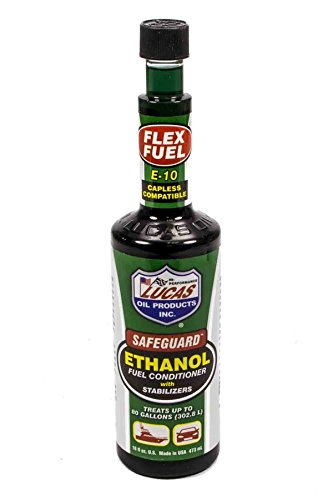
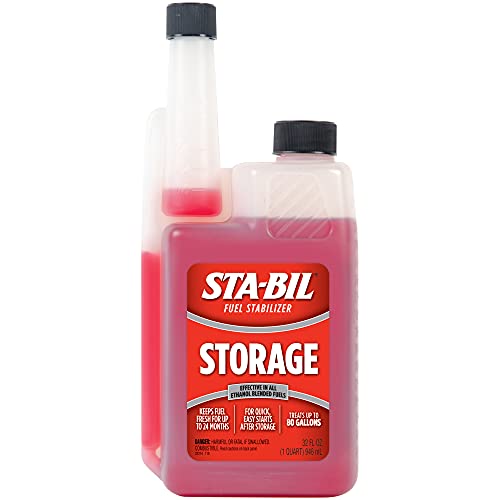


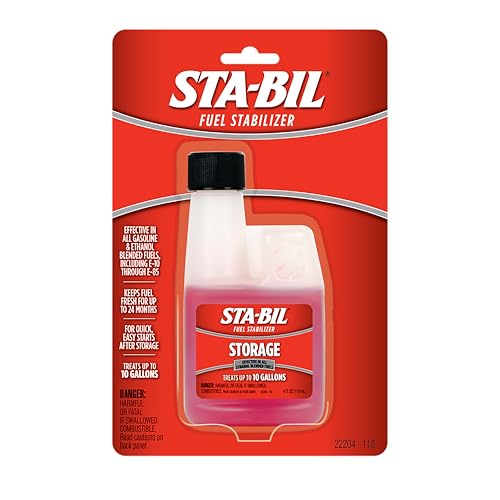
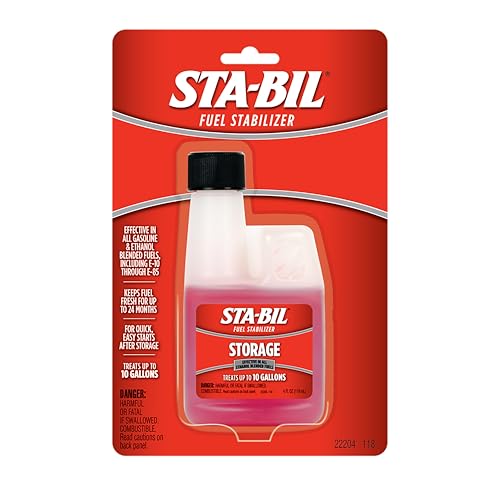
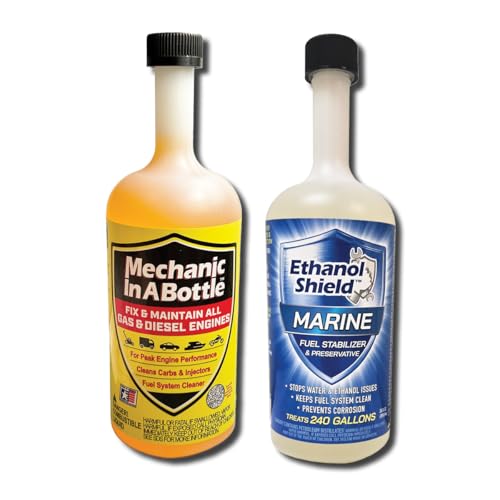




![What Car Is Chevy Bringing Back in [year]? New Lineup Revealed 17 What Car Is Chevy Bringing Back in [year]? New Lineup Revealed](https://carxplorer.com/wp-content/uploads/2026/01/What-Car-Is-Chevy-Bringing-Back-in-year-New-Lineup-Revealed-1-1-60x60.jpg)
